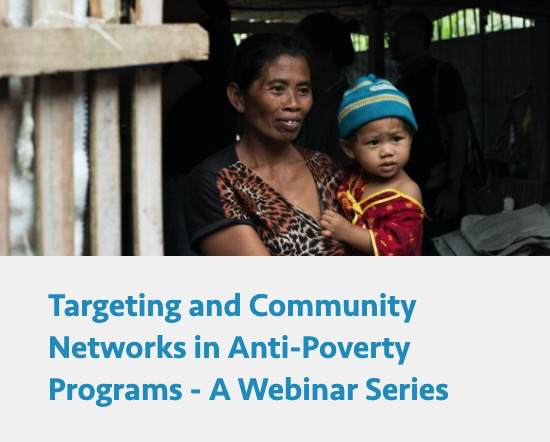Affirmative Action, Attitudes and Social Networks: Evidence from Caste-Based Reservation in India
SHARE THIS

| Emily Breza (Harvard University) | |
| Tuesday 19 January 2021 at 9:30 pm (Hong Kong time, GMT +8) | |
|
Zoom (click to register) Facebook Live |
We study the impacts of political affirmative action for historically disadvantaged caste groups in Bihar, India on village social and economic networks. These networks serve many functions such as facilitating social learning as well as providing access to resources through relationships. To estimate the causal impacts of the affirmative action policy, we conduct surveys in communities around the discontinuity in the state government’s policy assignment rule. We find that the marginal constituency assigned to the reservation policy experiences a drop in cross-caste network links and an increase in homophily. Consistent with increased social cleavages, social norms governing cross-caste interactions worsen, and untouchability practice increases. However, this does not appear to be driven by negative changes to stereotypes: we find no changes in beliefs about trustworthiness, competence, or work ethic, among others, about either caste group as a result of the policy. Consistent with the results on homophily, we show that political reservation leads to less social learning when information is introduced to the community -- on average there is worse knowledge about health preserving behaviors during the COVID-19 pandemic. Turning to resource access, we find that the affirmative action policy does improve access to new social transfer programs that were rolled out to mitigate the economic impacts of COVID-19. Our findings suggest that there is scope for pairing reservation with other interventions to mitigate the impacts of affirmative action on fractionalization while preserving the resource allocation benefits.
This is a joint paper with Arun Chandrasekhar (Stanford) and M.R. Sharan (University of Maryland).
About the speaker
Emily Breza is an Assistant Professor in the Economics Department at Harvard University. She received her PhD in Economics from MIT and her BA from Yale University. Prior to joining Harvard, Emily held a faculty appointment at Columbia Business School. She has faculty affiliations at the National Bureau of Economic Research (NBER), the Jameel Poverty Action Lab (J-PAL), the International Growth Centre, and the Centre for Economic Policy Research (CEPR). She is a 2020 recipient of the Sloan Research Fellowship.
Her research focuses on development economics, social networks, and household finance. She has conducted experiments to optimize information disseminate through village social networks in the context of the Indian demonetization and has studied how the social network interacts with the types of formal and informal financial products common to developing countries. Emily has also developed empirical methods for measuring social networks.
To Attend the Event
The event will be held online via Zoom. ** Register now **
Zoom will send you a confirmation email right away upon registration with a unique link to join the webinar. Reminder emails will also be sent 1 day and again 1 hour in advance of the event. Please check your spam box if you cannot find them in the inbox.
As part of our security measures, the webinar room will be locked about 20 minutes after the webinar starts.
Also, see here for advice from the university's IT office on Zoom best practices for attendees.
The event will be broadcast live on the Institute's Facebook page. Please "like" the page to get automatically notified once the broadcast starts.
The speaker will present for 1 hour and 15 minutes, and will take questions during the presentation.
This webinar is part of a series of webinars to present cutting-edge research on Targeting and Community Networks in Anti-Poverty Programs
Get updates from HKUST IEMS








